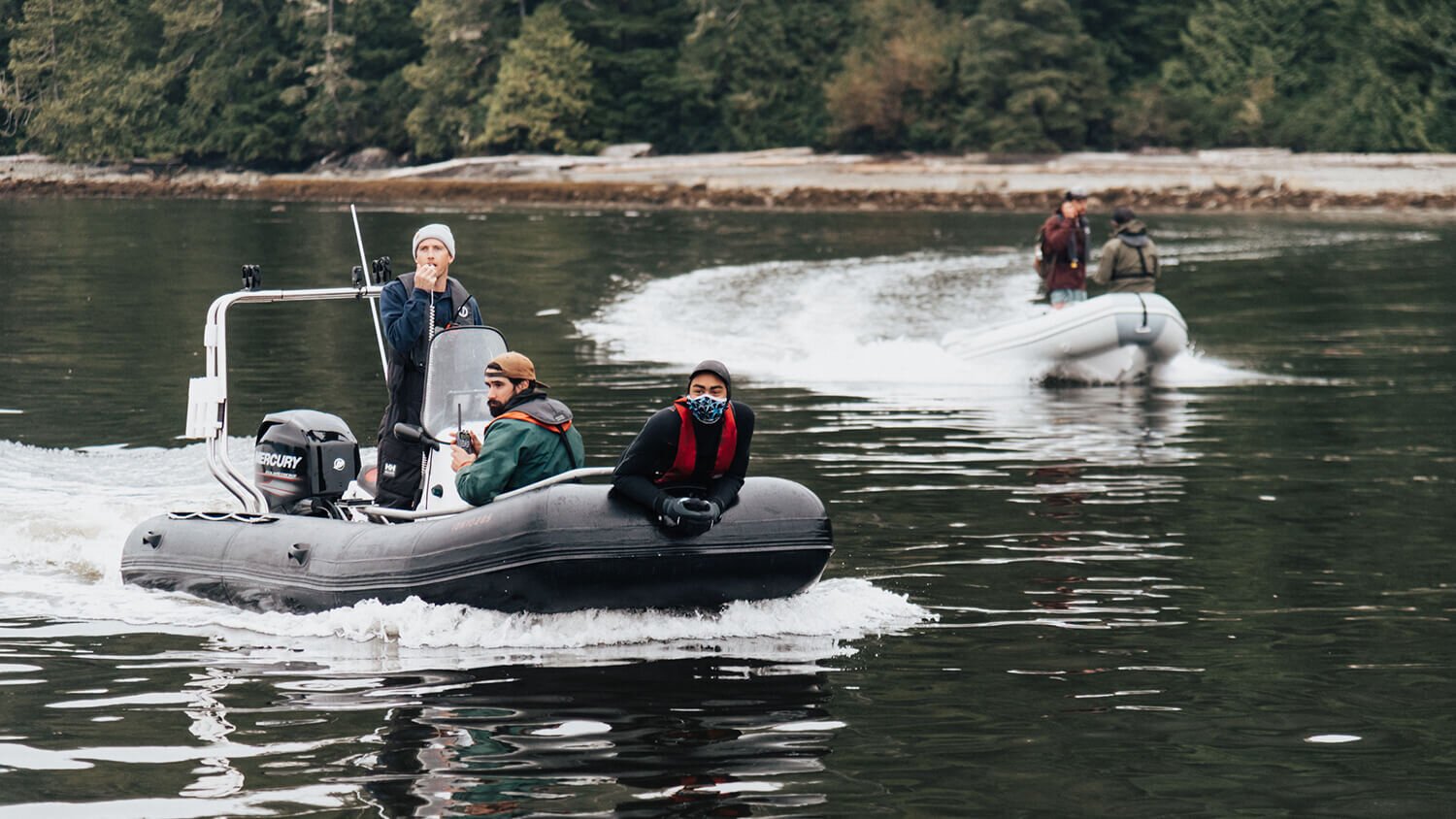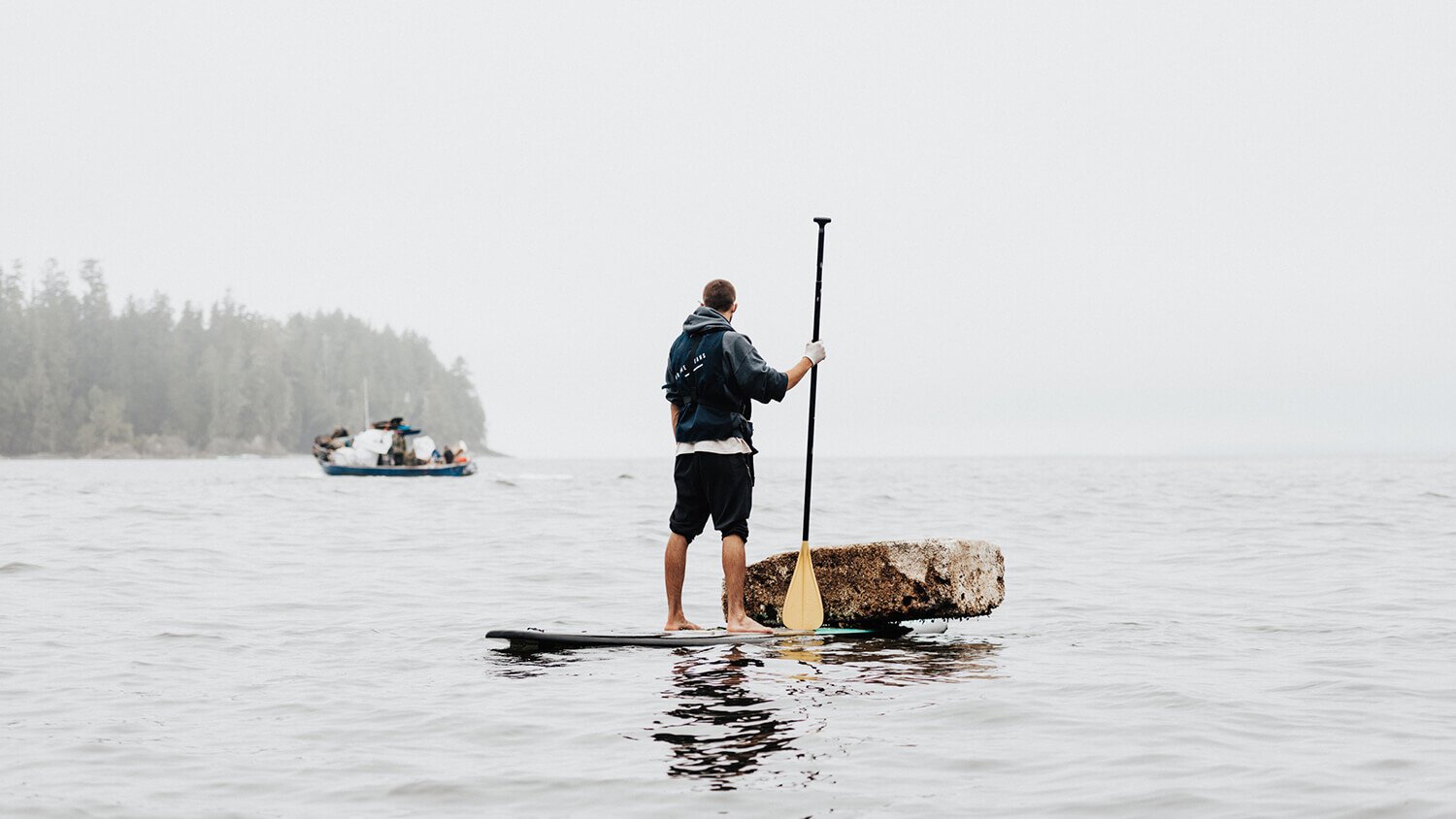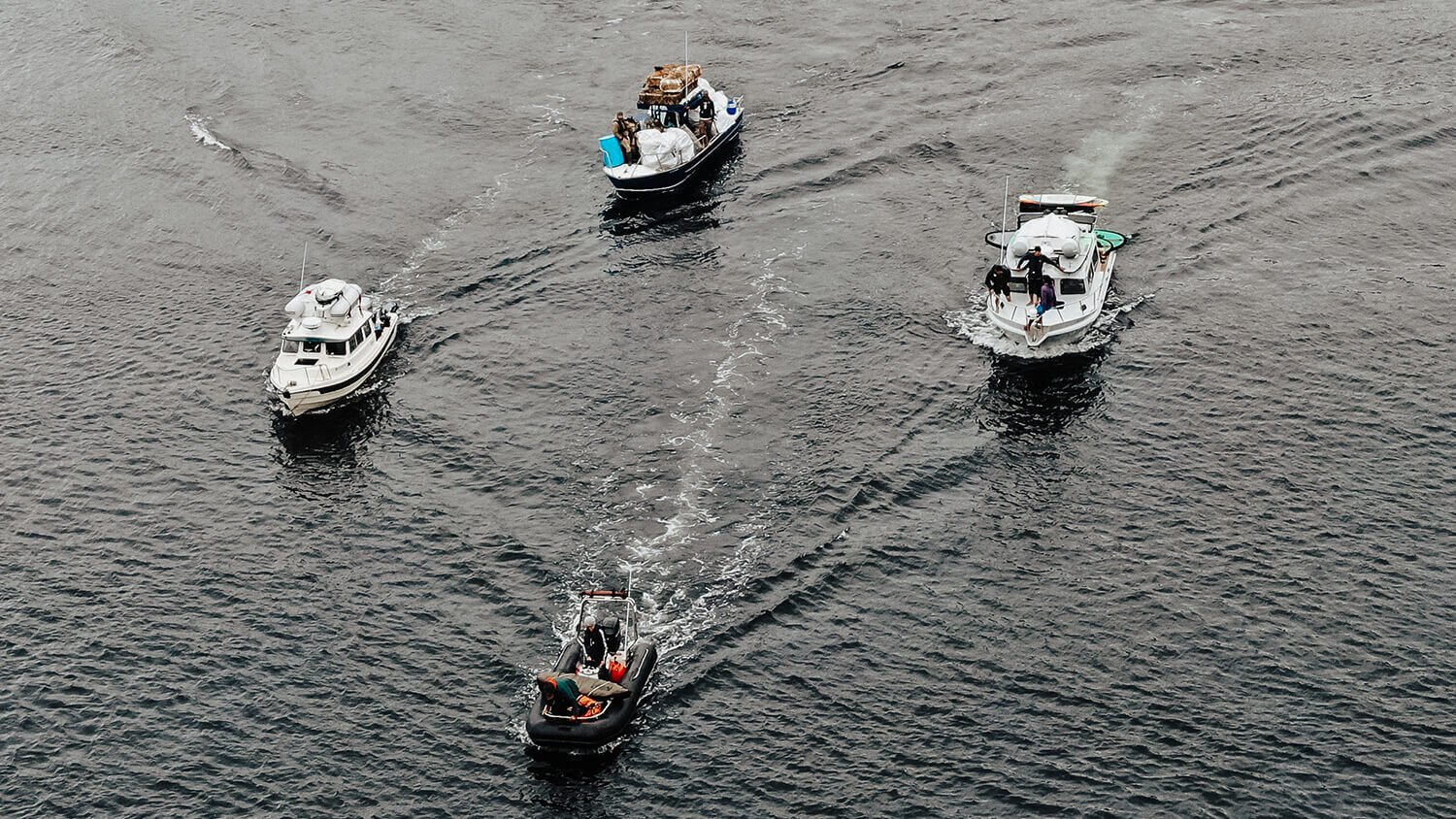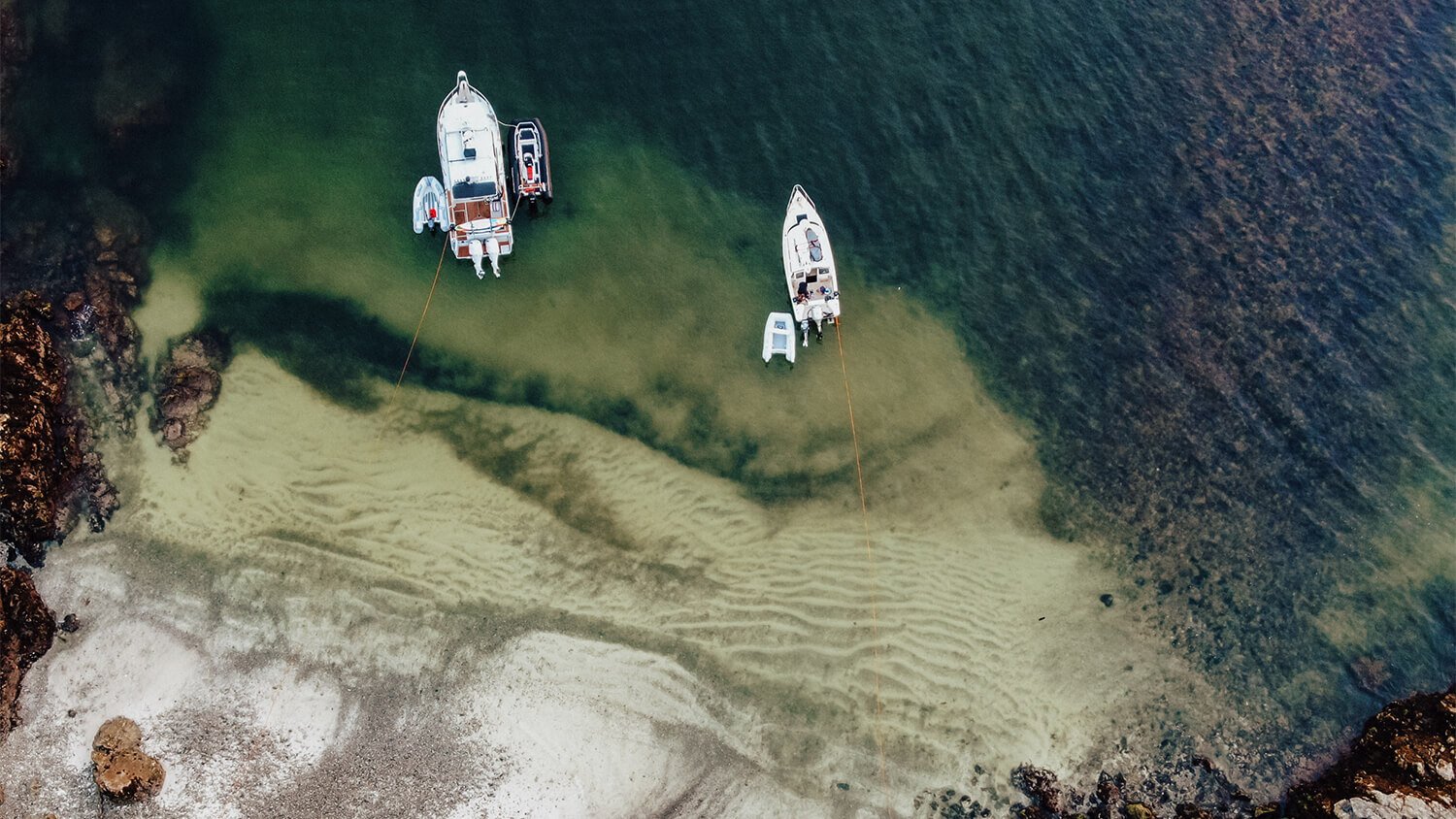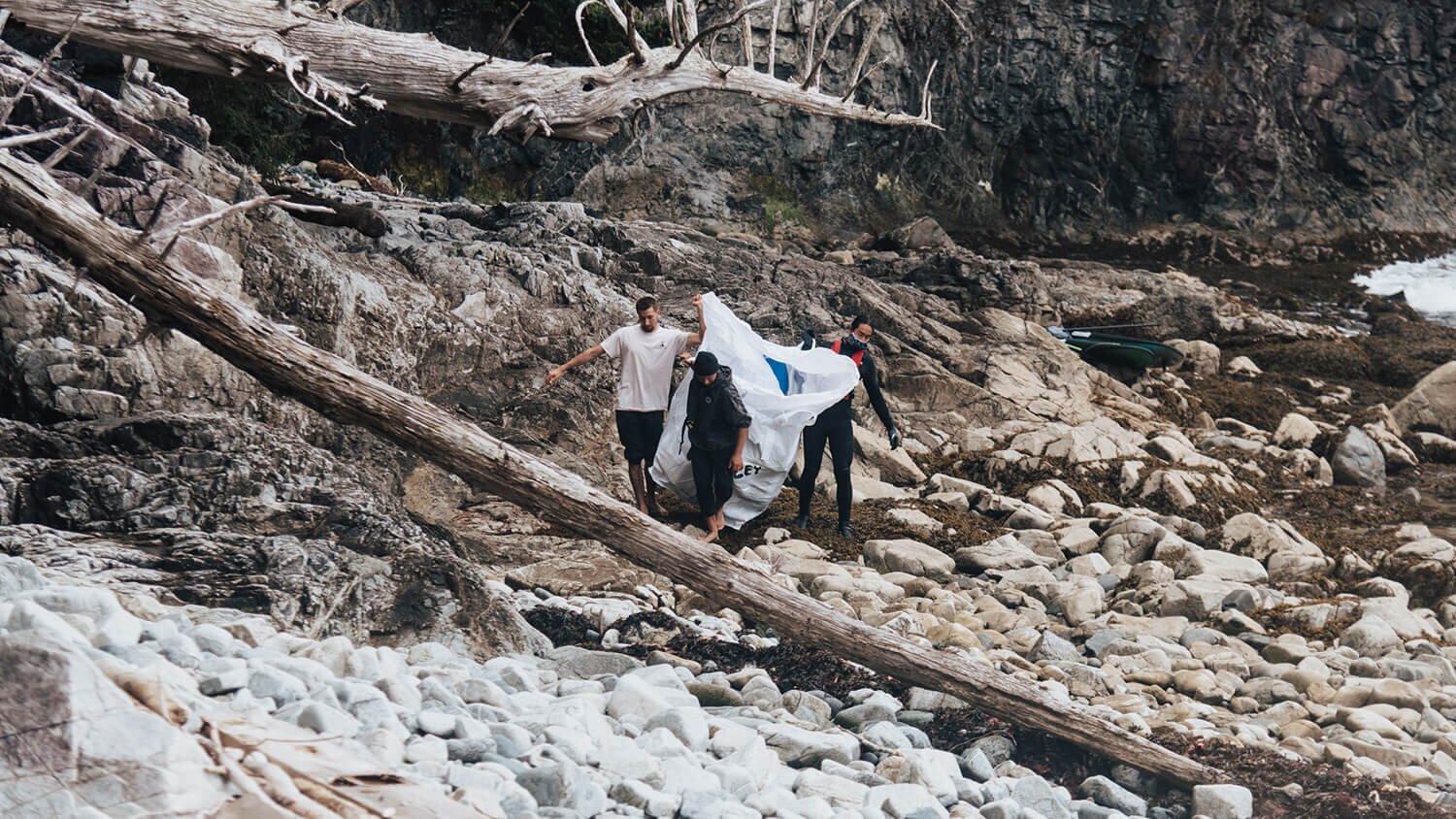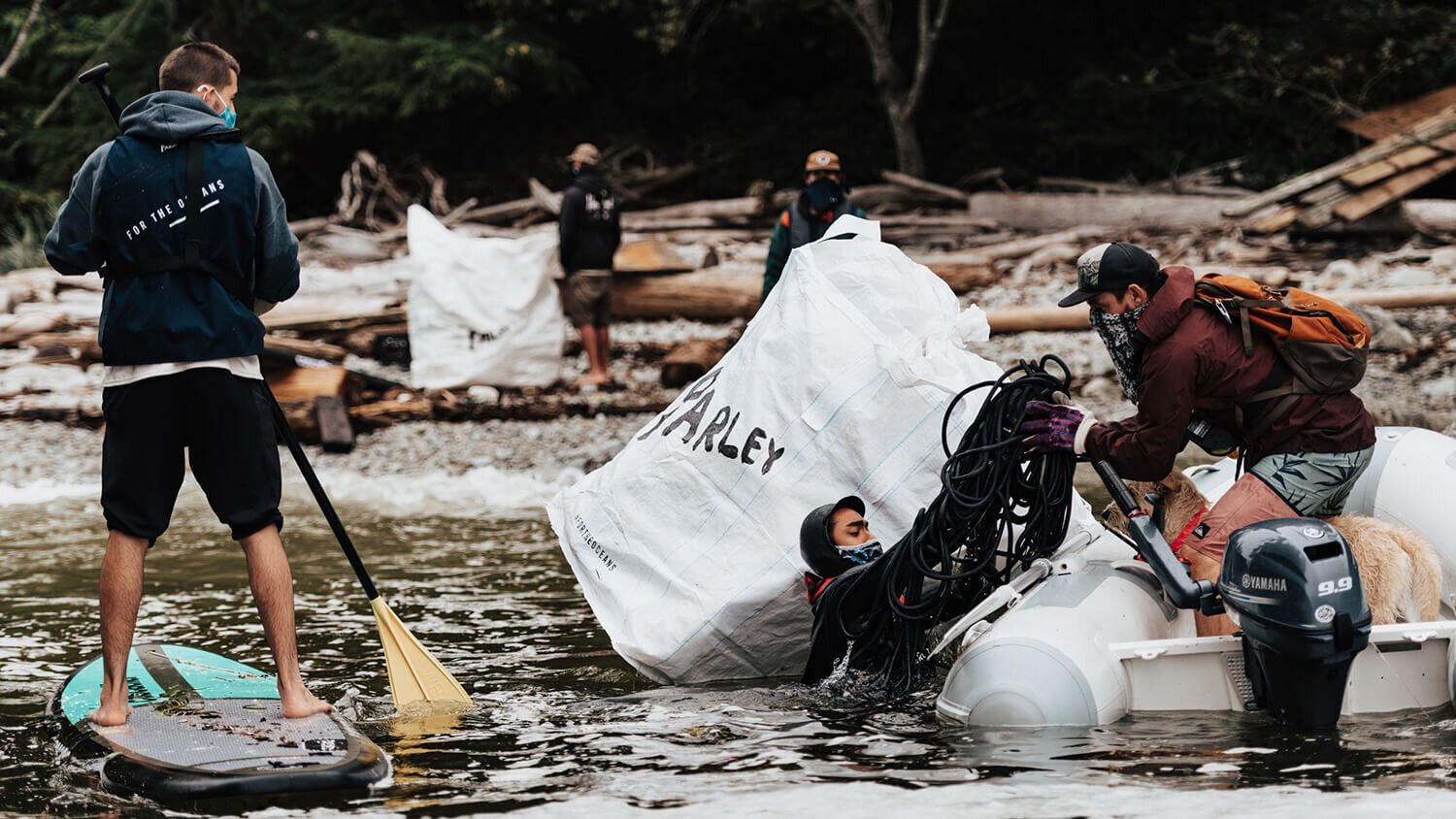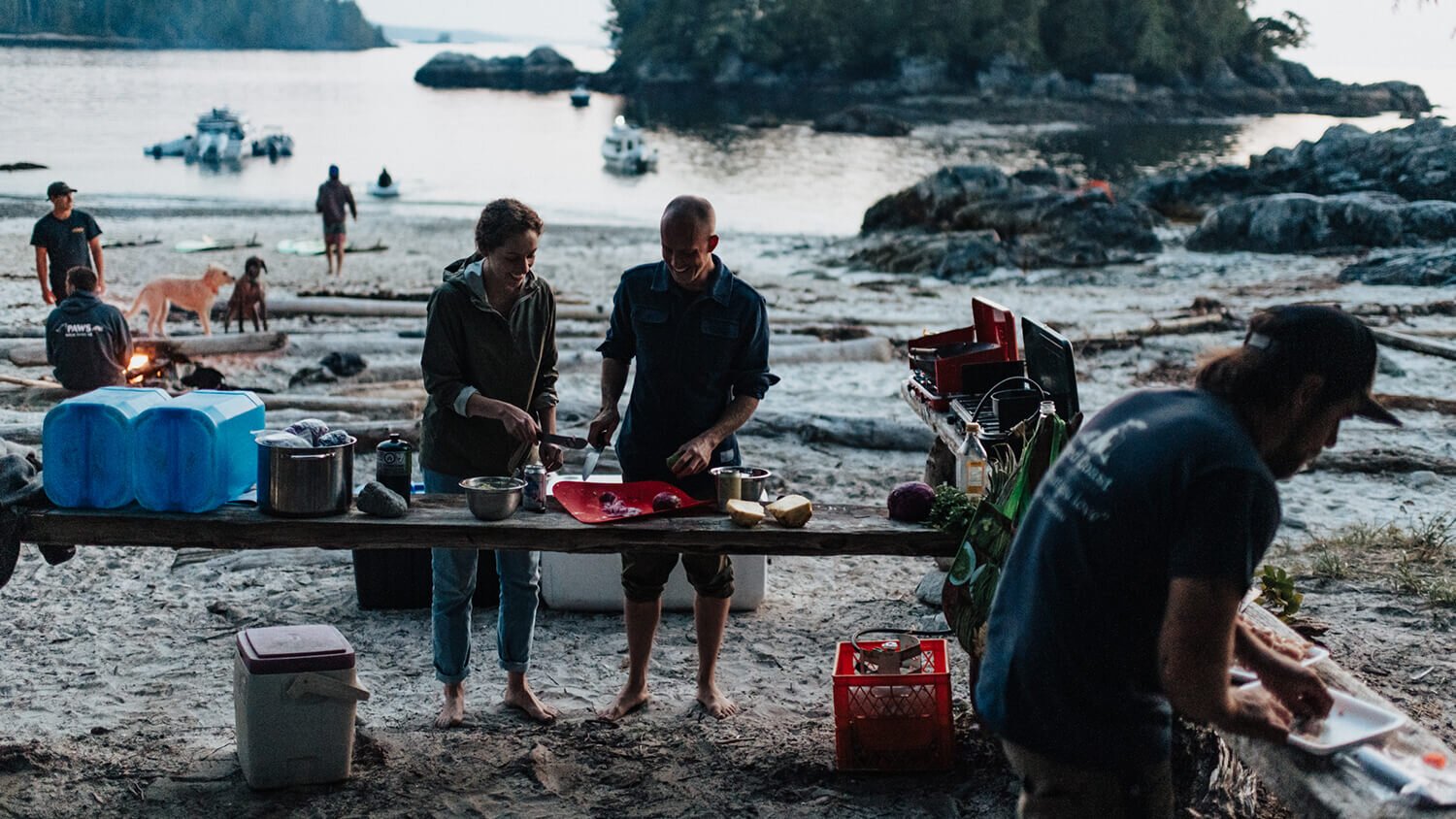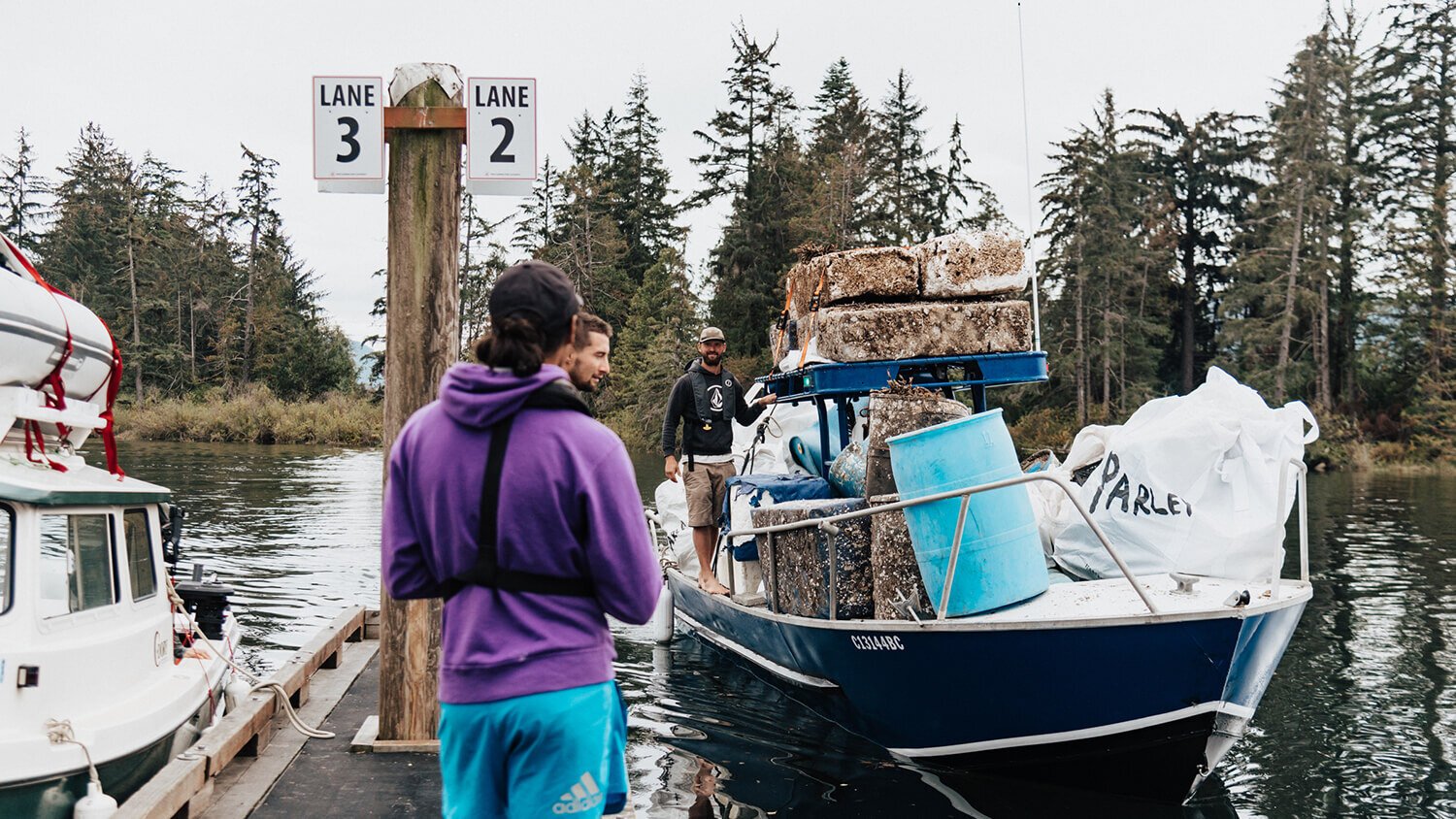The Rugged Coast
Parley Youth Team leader Bodhi Patil shares his experiences from a remote fishing gear cleanup expedition in British Columbia
I recently had the chance to embark on a life-changing expedition with Parley collaborators Rugged Coast Research Society (RCRS) – an organization working to study and help restore parts of Canada’s vast west coast. Our mission was to clean up six remote beaches off the coast of Vancouver Island in British Columbia – a wilderness that’s home to humpback whales, seals, sea lions, lingcod, octopi, bears, coastal wolves, and bioluminescent algae. The region’s marine ecosystems host a plethora of ocean wonders to cherish and protect.
We began the expedition by setting up camp in the wild west on Stud Island. After a mission briefing we explored the surrounding islands by paddleboard, with friendly seals following us into a rocky marine cove. What I saw next was shocking: plastic barrels, plastic bins, styrofoam blocks, ropes, and fishing debris, with some pieces as large as my 6-foot frame. This plastic pollution arrives from all corners of the Pacific and via the North American fishing industry, impacting the seemingly “untouched” rugged west coast ecosystem.
After our first day exploring, I reflected on the destruction that plastic pollution can bring to marine life and the urgency to take action. The next morning, we sailed through small inlets and began to clean up beaches and coves littered with plastic pollution. Approaching a rocky bay, I began to notice large accumulation zones of this pollution. I jumped out of the inflatable boat in my 5mm wetsuit and began cleaning the bay with the RCRS team. In a matter of minutes, a huge Parley silo bag had been filled with everything from shampoo bottles to plastic crates. Then we found a pile of abandoned blue oyster-growing barrels and the team began tossing them to me. From my position in the water, I hauled the silo bags and floated on the barrels through the breaking waves to the zodiac boats, which transported the debris to the bigger “trash craft”.
In one successful day of cleaning, we removed seven silo bags, eight barrels and 15 large blocks of styrofoam. It was time to return to our island base and gear up to score a quick surf and reward ourselves for our efforts. The swell was picking up and we jumped out of the boat and paddled to the empty lineup. Well, not so empty… a sea lion breached a few meters away and roared as it came to check us out. Its large head and black whiskers were observing us with intensity. Where the sea lion was in its element, I was out of mine, and fun quickly turned to fear.
Suddenly, a wall of water engulfed me. Before I could react, a cleanup set washed me into the rocks. As I took a closer look, I saw a black bear patrolling the beach. I intuitively knew that I needed to paddle back to the boat immediately. Struggling to overcome the heavy waves pushing me towards the beach, I feared I would not make it beyond the surf break. But I knew I was safe with the team nearby, and as crew member Mike pushed me out, and I felt a wave of newfound strength. I dug deep and paddled hard to overcome the onslaught of whitewater from the closeout set. With burning arms, a sharpened mind, and a sense of relief, I dragged myself onto my lifeline – the RCRS boat.
That night I went to sleep feeling rattled, humbled, and exhausted. The next morning, as we sorted the plastic pollution and parted ways, a wave of gratitude washed over me. Deep down, I felt grateful for the many lessons that a young person like me can learn from the magnificent oceans. The oceans have taught me humility, respect and the power of energy in motion – and this trip was yet another transformative lesson. A huge thanks to Rugged Coast for reinforcing the values of hard-work, honesty and integrity within me and teaching the world that you can have fun while working hard – #fortheoceans.
Bodhi Patil is the Parley Youth Team leader
All photos by Agathe Bernard

